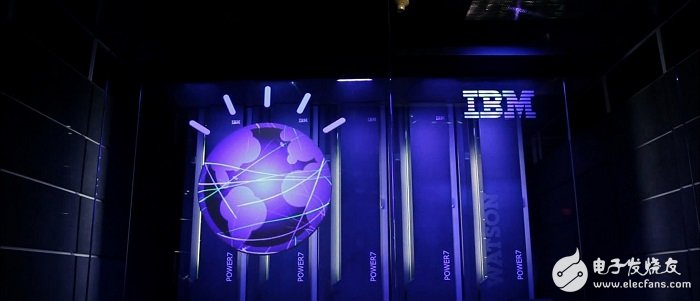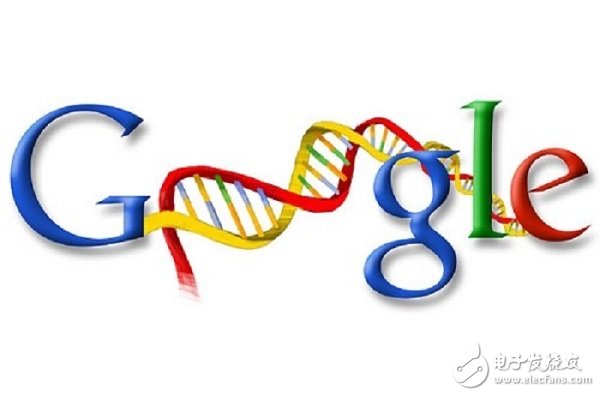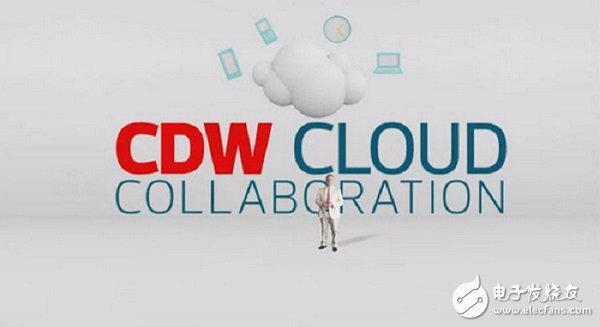As the demand for personalized medicine grows, medical information is beginning to show an overload trend. A large amount of data, if only enclosed in a single medical institution or medical device, may not only create a storage burden, but also a waste of sin – information from medical records, personal wearables, etc., is a precious resource for medical research. Since the medical is on the cloud, the data is stored and shared on an open platform, and the security is protected by appropriate encryption. The above problems have been widely solved. Today, companies and organizations have been able to buy cloud computing, storage, and network services in a variety of suppliers. Even the industry, which is relatively slow to accept new technologies, has begun to embrace this “cloud powerâ€. Infrastructure-as-a-service (IaaS) is everywhere, and the Association for Healthcare Information and Management Systems recently conducted a cloud analysis survey. Researchers found that 83% of US technology and medical institutions are using it. Some type of cloud service. In recent years, medical information security incidents have occurred frequently. The most recent news is that the mobile medical records of about 34,000 users of Quest DiagnosTIcs, the largest clinical diagnosis company in the United States, have been leaked. A regulatory compliance (usually referred to as HIPPA, US Health Insurance Portability and Accountability Act), and a high-security medical cloud solution can't be summed up with computing, storage, and network services alone. Here, I will take you through the process of understanding how many of the world's most influential medical cloud service providers are planning. IBM Watson Medical Cloud Platform Key traits: It can erase the identity of patients while sharing medical information, and can integrate a large amount of anonymous information to provide an aggregated view for clinical research and public health. Compliance: HIPPA compliance, and can sign more relevant Business Associate Agreements (BAAs) as needed. Charges: vary according to specific services. Provides a full range of cloud platform services such as business-level availability commitments, backup and disaster recovery. IBM Watson Medical Cloud has services in health care, disease management, population health, oncology, clinical trial matching, and even intelligent tracking in life science research, including storage and APP development. Users can not only store their own data, but also get specific data from 300 million patient information. Watson's superior analytical techniques, from predictive analytics to similarity analysis to natural language processing and deep question and answer, enable data to aid decision making. Cory Wiegert, vice president of IBM Watson Health, said: "Watson Medical Cloud is one of the world's largest non-government medical databases, sourced from clinical, scientific, medical IoT (wearable, digital medical devices), genetics, etc. ." The Watson platform's superior computing power, as well as the ability to manipulate, integrate and interpret complex information such as medical imaging or gene sequencing, are IBM's strengths. It is said that the biggest reason why medical institutions are reluctant to share data is not to keep confidential business competition, but to fear personal data disclosure. IBM uses the SoftLayer infrastructure it acquired to enable different cloud platforms to interact securely. In order to create a good privacy protection environment, Watson Medical Cloud is not only satisfied to meet the HIPPA standards, but plans to meet privacy security standards in all countries where it operates. Amazon Web Services (AWS) Key trait: Deliver a scalable cloud storage solution for developers and IT teams. Compliance: AWS has a standard risk management program to ensure that all security, operational, and management procedures that require HIPPA compliance are supported by the system. Fees: More than 60 cloud services are subject to pay-as-you-go. In 2015 alone, AWS released 722 new services, a 40% year-on-year increase. And they also intend to continue to be so productive, because consumers can benefit from the constant iteration of product updates. Contrary to IBM, AWS advises users not to use multiple cloud platforms to collaborate and interact, because each cloud provider has its own mechanism, and it is a huge and "healing" project to let them run smoothly. Instead, multi-regional deployments are based on the available areas of AWS, each of which is independent, geographically isolated, and highly reliable. AWS currently has nine HIPPA compliant services, namely DynamoDB NoSQL Database, Amazon ElasTIc Block Store (EBS), Amazon ElasTIc Compute Cloud (EC2), Amazon ElasTIc MapReduce (EMR), Amazon Elastic Load Balancer (ELB), Amazon Glacier , Amazon Relational Database Service (RDS), Amazon Redshift, and Amazon imple Storage Service (S3) Google Cloud Platform Key traits: The platform is based on a global data center with a Google App engine, a container cluster manager using Docker technology, and a load-balanced cloud CDN (content distribution network) that can store, process, discover, and share complex Gene data set. Compliance: Google Cloud Platform supports HIPPA customers, and its Compute Engine, Cloud Storage, Cloud SQL, Genomics, and Big Query tools all have Business Cooperation Agreements (BAAs). Fees: Two kinds of charging methods - one is long-term use, the discount is more powerful; the other is billing by minute. No use of agreements, prepayment requirements, etc. The architecture of the Google Cloud Platform consists of three major components: Compute Engine and App Engine for computing functions, Cloud Storage for storage functions, Cloud SQL and Cloud Datastore, and APP Services BigQuery and Cloud Endpoints. The most direct medical-related product on the platform is Google Genomics. It was designed for researchers who need to process genetic data on a large scale with cloud computing. With Google's technology, it was only possible to research a pair of genomes at a time, and now it can use a huge amount of database resources. Joe Corkery, senior product manager for healthcare and life sciences at Google Cloud Platform, said "Google Genomics is the most important reason for this platform to enter the life sciences." Another unique cloud service for the platform is machine learning. TensorFlow is an open source computer intelligence library that can be used on any CPU or operating system with a single API. Thanks to the openness of TensorFlow, Google's Cloud Machine Learning API allows each developer to incorporate machine learning into their applications, and there is an entire machine learning platform on Google Cloud. The Google Cloud Platform now has several parts to support HIPPA: Compute Engine, Cloud Storage, Cloud SQL, Genomics, and Big Query. CDW Key Features: A user-friendly control panel enables rapid deployment of applications and integration of information from multiple environments. Compliance: CDW's data centers, as well as some of the company's special collaboration channels, have different HIPPA compliance cloud services. Charge: Unknown. CDW has more than 30 categories of clouds and more than 200 products. The solutions are aimed at office productivity improvement, communication and collaboration, long-term data backup and so on. CDW attaches great importance to the medical business and has launched the CareCloud medical cloud platform, enabling medical users to rapidly develop and deploy applications in any environment. Customer executive Sandra Yu expressed understanding of the medical industry's requirements for product HIPPA compliance, and in order to cater to this, CareCloud has launched a number of HIPPA compliance products. However, Yu also stated that the cloud solution is not an IT panacea that can solve all personnel and management problems. "Technology changes are forcing medical care to keep pace. Technology solves a lot of problems, but also brings new problems, such as security, bandwidth, etc." Microsoft Key traits: Microsoft's Operational Security Assurance (OSA) program provides an operational security baseline for all large cloud services, helping to continuously reduce critical risks. Compliance: Microsoft has a number of cloud services that are HIPPA compliant and have signed a Business Cooperation Agreement (BAA). Charges: Based on usage decisions, combined with pre-customized protocols and the amount of cloud service usage. "In the medical industry, security managers are guaranteed to be four or five times more secure than other industries," said Neil Jordan, general manager of Microsoft Global Healthcare. Microsoft has indeed added multiple security protections to its services. First, it uses SDL technology to find the process framework for solving related vulnerabilities as early as possible in the software development life cycle. It is like adding "safety" as a kind of recipe to cake instead of cake. Second, OSA provides an operational security baseline for cloud services; third, Microsoft also works with the technology ecosystem to secure data security for healthcare organizations, and now invests more than $1 billion annually in network security research, bringing a Security experts from around the world gathered for the Microsoft Enterprise Cyber ​​Security team. On the Microsoft Azure cloud computing platform, Power BI cloud analytics services enable healthcare users to gather information from internal electronic medical records systems and external, reliable open data sources. Through visualization tools, medical organizations can better understand industry trends and patterns. ClearData Medical Cloud Computing Platform Key traits: Companies and organizations can rapidly expand and reduce the range of search resources through their cloud platform services, while ClearData also automatically monitors applications and environments. Compliance: ClearData guarantees HIPPA compliance and is particularly concerned with system security. Charges: The beginning of the period is charged on an hourly basis; if you need to run the database for a long time, there are other kinds of charging models for customers to choose. Unlike the other cloud providers in this article, ClearData is the only company dedicated to healthcare, with a focus on security and HIPPA compliance. Generally speaking, when an organization puts data into a cloud platform or builds an application based on the platform, several different compliance tools are used separately; and ClearData is different, it can automatically detect the environment and ensure that they are always in compliance. Use the service under the conditions. In addition, ClearData can monitor the security and compliance status of a healthcare organization's infrastructure in real time, prompting users when a vulnerability occurs in a certain part. The platform is built on top of the AWS cloud architecture mentioned above, and users can operate directly in the AWS environment or directly use ClearData's software automation products. Verizon Cloud Platform Key traits: highly flexible. Compatible with customers' existing IT systems, or other hosting platforms, and with tools for planning and migration. Compliance: The platform is HIPPA compliant in selected data centers and can be placed in a common framework across multiple healthcare cloud platforms. Verizon also offers other services that have implemented HIPPA compliance. Fees: Cloud services and managed hosting services establish a price model through the use and delivery. The monthly cloud computing services, network, operating system, storage and other related cloud services are recorded in detail. Medical companies can integrate existing private network services (such as Verizon hosting services) with Verizon cloud services. The Verizon platform only provides secure network connectivity to user-identified cloud platforms. As for the service agreement, Verizon describes in detail the platform and the parts that users need to be responsible for. “Customers may be primarily responsible for HIPPA, and we will provide follow-up services.†VMware vCloud Air public cloud platform Key traits: The platform has three IaaS subscription services—proprietary cloud, virtual private cloud, and disaster recovery. Compliance: VMware provides a Business Cooperation Agreement (BAA) for users of all data centers in the United States. Fees: Depending on the service, the influencing factors include the size of the service level agreement and the contract term. In addition, different recovery point objectives and "Database-As-a-Service" factors can also affect prices. VMware provides public cloud platform services, either from the company itself or from other 4,000 partners in the vCloud Air network; private cloud networks create a Zero Trust environment with a very strict security model The detection of threats in the network is very detailed, and the micro-segmentation technology makes the patient data not leak in the case of system loopholes.
XB4 series Pushbutton Switch are used in industrial for controlling circuits of AC50Hz or 60Hz,rated operation voltage 380V or below and DC operational Voltage 220V or below for controlling in magnetic starter, contactor,relay and other electrical circuits. The buttons indicators can also be used in the place with indicated light or signal. They meet with the standards: IEC 60947-5-1.
XB4 Series Metal Pushbutton Switch is the new design in the field of Push Button Switch. Which with stronger metal plate and very easy to be installed.
XB4 Series Pushbtton Switch,Push Button Power Switch,Mini Push Button Switch,Push Button Lamp Switch Ningbo Bond Industrial Electric Co., Ltd. , https://www.bondelectro.com


